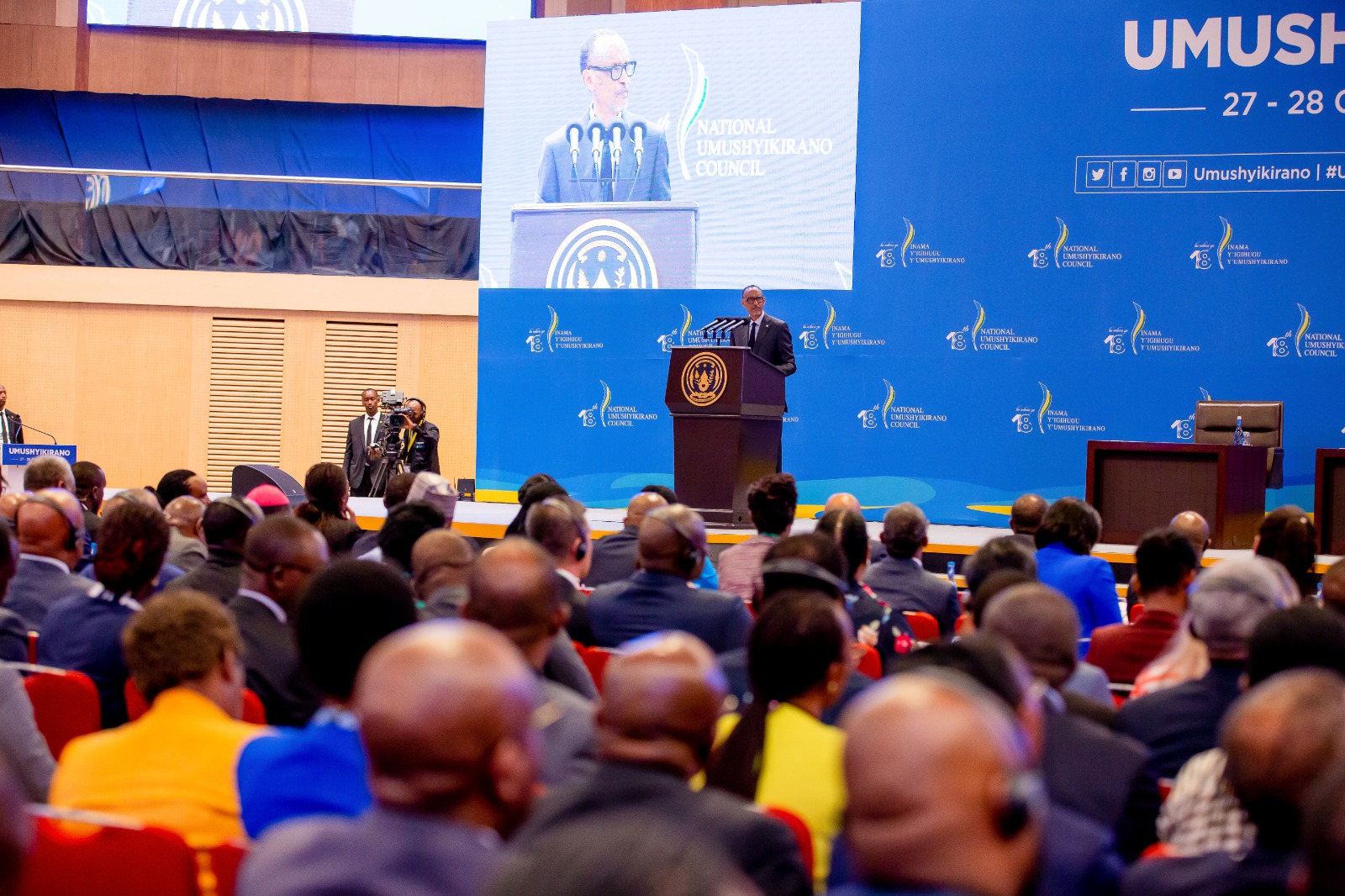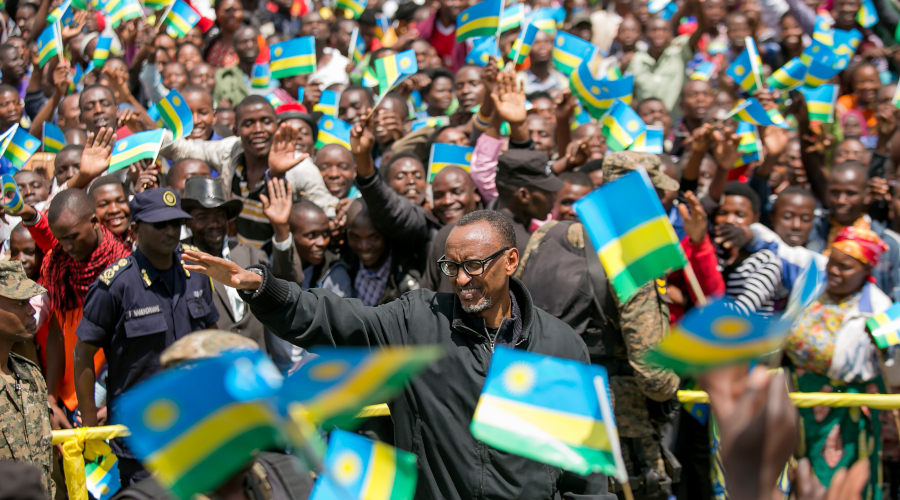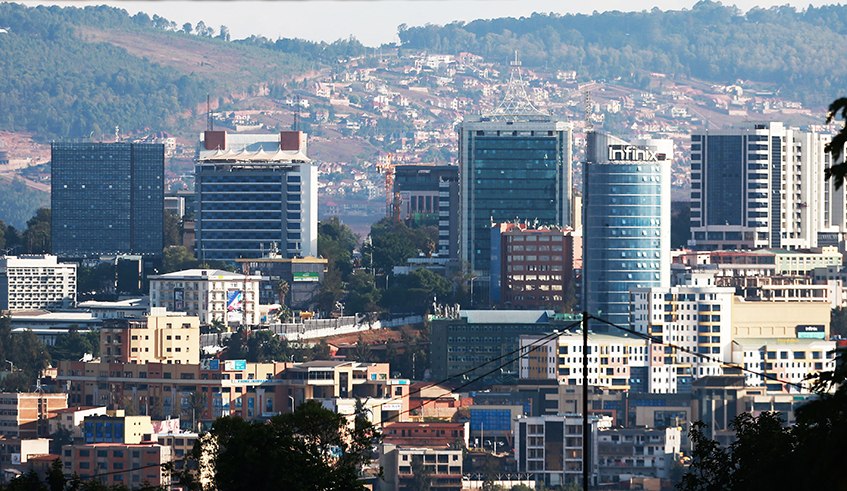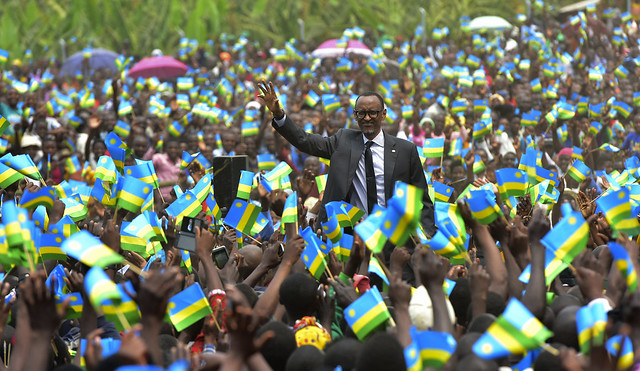Regional
Umushyikirano, Rwanda’s model of servant leadership

Every
year, Rwandans from all walks of life gather for the National Dialogue Council
commonly known as Umushyikirano.
Chaired
by President Paul Kagame, Umushyikirano is one of the Home Grown Initiatives
(HGIs). It is an event that gathers government officials, local leaders, members
of the judiciary, parliamentarians, civil society representatives, the business
community, and Rwandans abroad.
It
serves as a special platform for open discussions, allowing citizens to ask
questions, provide feedback, and evaluate the progress of resolutions made in
the previous year's discussions.
Home
Grown Initiatives are Rwanda’s ‘trade mark’ solutions built based on Rwandan
history and culture. These policies are a direct response to economic and
social challenges, and contribute to fulfilling the developmental vision of
Rwanda.
The
most extensive and transformative HGIs include Umuganda, Gacaca, Abunzi,
Imihigo, Ubudehe, Itorero and Ingando, Umushyikirano, Umwiherero and Girinka.
During
Umushyikirano, major decisions are made from ideas gathered from the public.
Concepts like establishing Rwanda’s sovereign fund (Agaciro Development Fund),
the one stop centre for investors, and many more were conceived from different
sessions of Umushyikirano.
The
significance of Umushyikirano lies in its roots as a citizen participation
mechanism in post-genocide Rwanda.
Umushyikirano
exhibits a unique model of democracy hinged on accountability and citizen’s
involvement in Rwanda’s governance – a style that emerged from post-genocide
consultations known as Urugwiro consultative meetings held from 1998 to 1999.
Positioning
itself as an influential member of the world order and rejecting externally
imposed solutions, Rwanda forged its path based on home grown solutions –
culturally rooted practices translated into sustainable development programs.
The
2023 Umushyikirano focused on improving the lives of Rwandans, and it showcased
tangible government action following a pandemic that ravaged the world from
March 2020 to around early 2022, addressing agriculture, healthcare,
electricity access, education, and industrial investments.
Prime
Minister Edouard Ngirente emphasized the practical benefits of a growing
economy for ordinary citizens. Despite its openness to citizen assessment,
Rwanda faces criticism for allegedly lacking political space for dissenting
voices, a claim deemed misinformed or malicious by proponents of the
Umushyikirano model.
In
addition, Umushyikirano serves as a mirror for collective introspection, with
President Paul Kagame acknowledging achievements while pointing out
shortcomings.
Umushyikirano
is not merely a celebration of progress but an ongoing commitment to continuous
improvement, aligning with the high standards set by Rwandans themselves.
Rwanda's
rejection of conventional measures of progress challenges observers to rethink
their assessments, emphasizing the importance of context-specific, culturally
grounded approaches to governance.
The 2024
Umushyikirano will center around themes of national progress made in the last
30 years, unity as a pillar of the country’s development, and the empowerment
of the country’s young people.
The
discussions coincide with the concluding phase of the seven-year National
Strategy for Transformation (NST1) spanning 2017 to 2024.
Enacted
in 2017, NST1 outlined the government's strategies to achieve its economic
development goals in line with the 2020 and 2050 visions. The strategy
incorporated insights from past development plans, encompassing both successes
and challenges encountered in earlier medium-term approaches.
Rwanda's
new revolution, stemming from the Urugwiro meetings, stands as a testament to
its commitment to democracy, collective well-being of Rwandans and servant
leadership.
The
international community would do well to take note of Umushyikirano as a model
for inclusive dialogue, growth, and unity in a world seeking effective
governance solutions.


.jpeg-20221214055432000000.jpeg)





